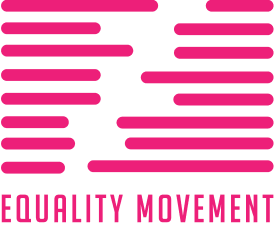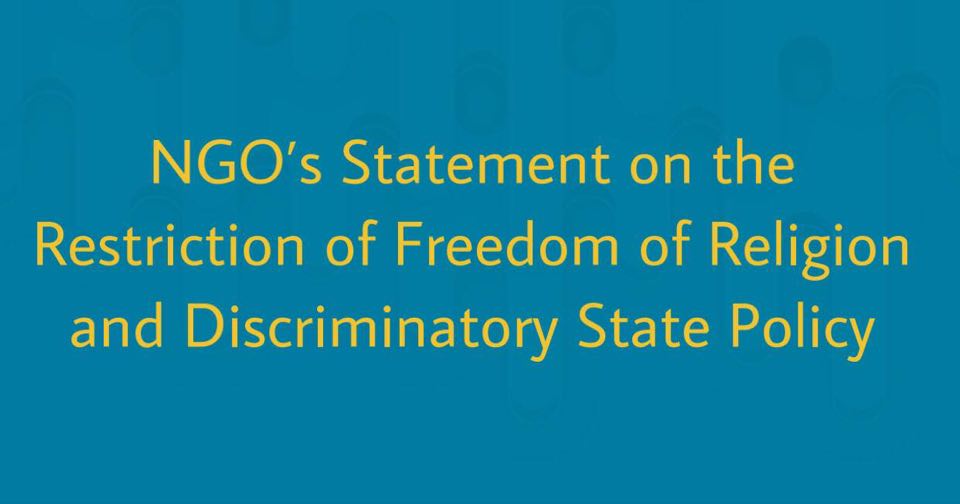Civic platform “No to phobia!” And the „Coalition for Equality“believes that the situation in Georgia in terms of protection of freedom of religion and belief has sharply deteriorated in recent months. The state violates the principles of secularism and equality, the rights of religious minorities, and manifests unequal treatment towards people of different religious beliefs.
In this regard, the following events are particularly alarming: the religious intolerance and violation of equality against Muslim citizens in the village of Buknari in Chokhatauri municipality; Discriminatory policies of the government during the pandemic that have differentiated the celebrations of religious holidays; And the recent disregard of anti-Semitic rhetoric revealed by the high ranking clergy of the Orthodox Church.
Persecution of Muslim citizens in the village of Buknari
In the village of Buknari in Chokhatauri municipality, there has been a confrontation between local Muslims and Christians on religious grounds for several weeks. The Christian population has been protesting the Muslim prayer that occurs at a privately purchased house by the Muslims, arguing that “this is a Christian land” that has no place for a mosque.
The situation has worsened in recent days. Several Muslims (including minors) were injured during the violence exhibited on January 12th. The situation was tense on January 13th as well.
Arranging a shrine and worship at a private property by a Muslim community is a constitutional right. Accordingly, the state is obliged to fulfill the positive obligation arising from the freedom of religion and to prevent any action that hinders the worship of the Muslim population, as well as to take all possible preventive measures. Events that have unfolded in the village of Buknari are not the first case of violation of the rights of Muslims. Persecution of religious minorities on religious grounds, physical and verbal violence, illegal interference with the implementation of religious ceremonies is some of the most acute and systemic problems in Georgia. Across Georgia from 2012 to 2016, eight large-scale cases of religious violence and violations of rights against Muslims have been revealed. In seven out of these cases, no one has been found guilty, and in some cases, the investigation has been fruitless.
In response to the identified religious conflicts the government has established – the State Agency for Religious Issues, however, it has problematic mandate and competencies. Namely, rather than viewing religious freedom within the realm of human rights, it sees it from the perspective of state security.
The fact that numerous acts of violence and discrimination on the basis of religious intolerance have not resulted in an adequate response from the state, further aggravates the legal status of religious minorities, as it creates a sense of impunity in the society, and promotes confrontation between different religious groups.
Christmas Celebration
As an exception to the restrictions in place due to the spread of Coronavirus, the government allowed freedom of movement only on the night of 6th of January, when Orthodox Church celebrates Christmas, and disregarded other religious celebrations of religious minorities. According to Vice Prime Minister Maia Tskitishvili, if members of different denominations wanted to attend the church on Christmas Day (25th of December), religious organizations had to provide a “list of parishioners” to government agencies and in return “a one-time pass for these individuals would have been provided.”
The Deputy Prime Minister’s statements were preceded by the Prime Minister’s 14th of April statement on the celebration of Easter. According to Giorgi Gakharia, Georgia is an “Orthodox state”.
Such statements by the authorities show that the government openly and purposefully restricts freedom of religion, disregards the rule of law, the equality of citizens, and the constitutional principles of separation between the state and religious institutions.
Ecclesiastical anti-Semitism and government response.
Neither the patriarchate nor the governmental authorities have condemned the ecclesiastical anti-Semitism revealed in recent days by the clergy of the Orthodox Church.
On 20th of December, 2020, Ioane Gamrekeli, Metropolitan of Kutaisi-Gaenati Eparchy, Head of the Education Center of the Georgian Patriarchate, made anti-Semitic statements while preaching in the Bagrati Temple. The sermon echoed the pervasive religious stereotype of the Jews noting that the entire Jewish nation is collectively responsible for the crucifixion of Christ and thus appears to be a persecutor of Christians, which in turn is one of the strongest foundations of institutional anti-Semitism occurring for centuries. To this day the church has not acknowledged the problematic nature of Metropolitan Ioane Gamrekeli’s statements. At the same time, a number of anti-Semitic comments from the other Orthodox clergy have appeared on social networks (see the sermon of Archpriest Ilia Karkadze). No less disturbing was the statement made by Lasha Zhvania, Georgia’s ambassador to Israel, who publicly supported Metropolitan Ioane Gamrekeli and accused human rights activists of slander.
Current events have been critically assessed by the Public Defender of Georgia, diplomats, including the Israeli Ambassador to Georgia, Ran Gidor, Jewish organizations and the political opposition (European Georgia).
The signatory organizations call on the Georgian authorities to:
- Adhere to the fundamental right of all citizens to freedom of religion and belief, the principles of separation of religion and state, and the principles of equality; To enable citizens to enjoy the freedom of religion and belief without hindrance and regardless of their religious denomination;
- Ensure an effective investigation in regards to the violence surrounding 12th of January, 2021 and religious persecution in the village of Buknari and to take adequate measures aimed at preventing further violence;
- Ensure the free and safe conduct of worship by the Muslim community living in the village of Buknari;
- Develop a long-term strategy and action plan aimed at the transformation of religious conflict, that will create conditions and guarantees for peaceful, equal, and harmonious coexistence between religious communities through educational, cultural, and social programs;
- Cease discriminatory policies against religious associations and interference with their autonomy;
- Criticize and strictly condemn anti-Semitism. To disseminate statements in support of tolerance, respect for human rights, and the prohibition of discrimination.
Signatory organizations:
Tolerance and Diversity Institute (TDI)
Georgian Democracy Initiative (GDI)
Media Development Foundation (MDF)
Tbilisi Pride
Institute for Democracy and Safety Development (IDSD)
Human Rights Center (HRC)
Rights Georgia (RG)
Equality Movement
Georgian Young Lawyers’ Association (GYLA)
Women’s Initiatives Supporting Group (WISG)
Partnership for Human Rights (PHR)
Human Rights Education and Monitoring Center (EMC)
Sapari
Open Society Georgia Foundation (OSGF)


 ვებ-გვერდი შექმნილია RFSU-ს ფინანსური მხარდაჭერით.
ვებ-გვერდი შექმნილია RFSU-ს ფინანსური მხარდაჭერით.

